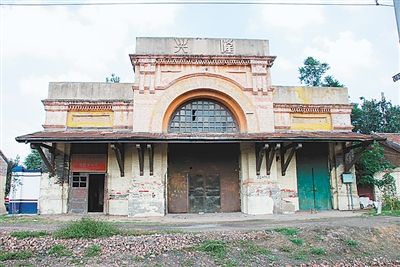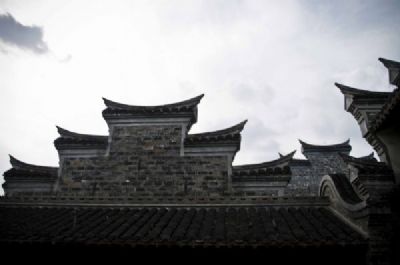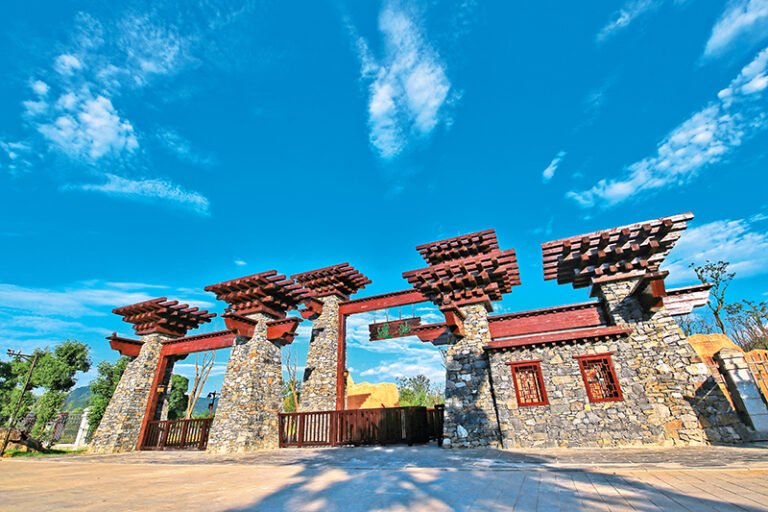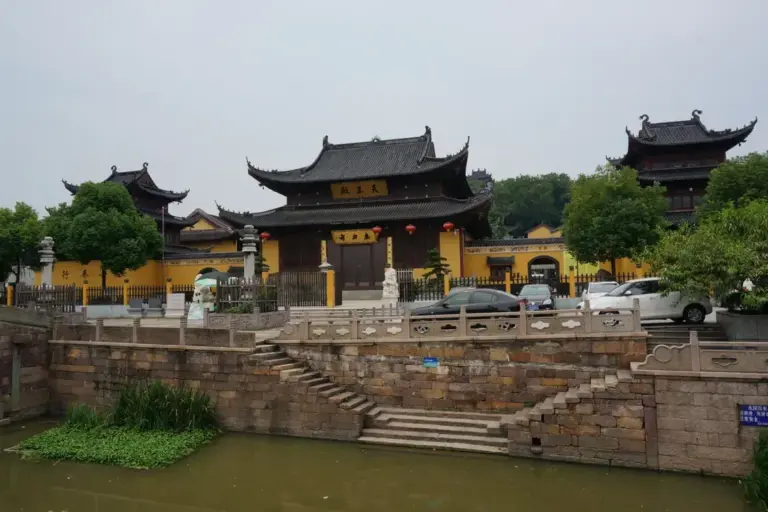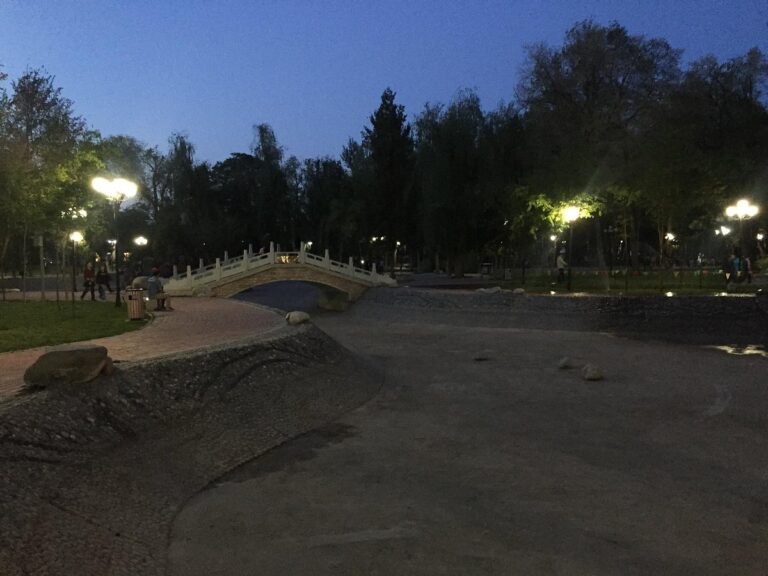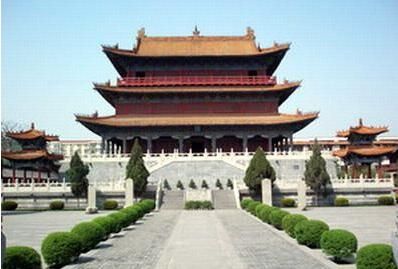A Visitor’s Guide to Kunming’s Zhenqingguan Gujianzhuqun: Secrets and Stories
An Essential Guide to Visiting Kunming Zhenqingguan Gujianzhuqun
In This Guide
- An Essential Guide to Visiting Kunming Zhenqingguan Gujianzhuqun
- The Rich History of Kunming Zhenqingguan Gujianzhuqun
- Main Highlights: What to See at Kunming Zhenqingguan Gujianzhuqun
- Planning Your Visit: A Practical Guide
- Tickets, Hours, and Booking
- How to Get There
- Local Cuisine and Accommodation
- Frequently Asked Questions
- Final Thoughts on Your Trip
Nestled in the heart of Kunming, the capital of Yunnan Province, lies a serene retreat that offers a glimpse into the region’s rich cultural tapestry. Kunming Zhenqingguan Gujianzhuqun, or the Zhenqing Temple Architectural Complex, is a remarkable site that dates back to the Yuan Dynasty. Originally established as the Zhenwu Temple, this ancient Daoist sanctuary was reconstructed during the Ming Dynasty, giving it the name it carries today.
As you step through its gates, you’ll be transported to a world where history and spirituality intertwine. The complex is a stunning representation of traditional Chinese architecture, showcasing intricate wooden carvings and elegantly designed structures that have stood the test of time. From the ornate halls dedicated to revered deities to tranquil courtyards that invite contemplation, every corner of Zhenqingguan tells a story of devotion and artistry.
Despite being surrounded by the bustling city, Zhenqingguan offers a surprisingly peaceful atmosphere, making it a perfect escape for both locals and travelers. Visitors can immerse themselves in the spiritual ambiance, partake in local customs, or simply enjoy a moment of reflection amidst the ancient architecture. With its historical significance and architectural beauty, Zhenqingguan is not just a destination; it’s a journey into the heart of Yunnan’s cultural heritage. Whether you are a history enthusiast, a spiritual seeker, or a casual traveler, this hidden gem is a must-visit when exploring Kunming.
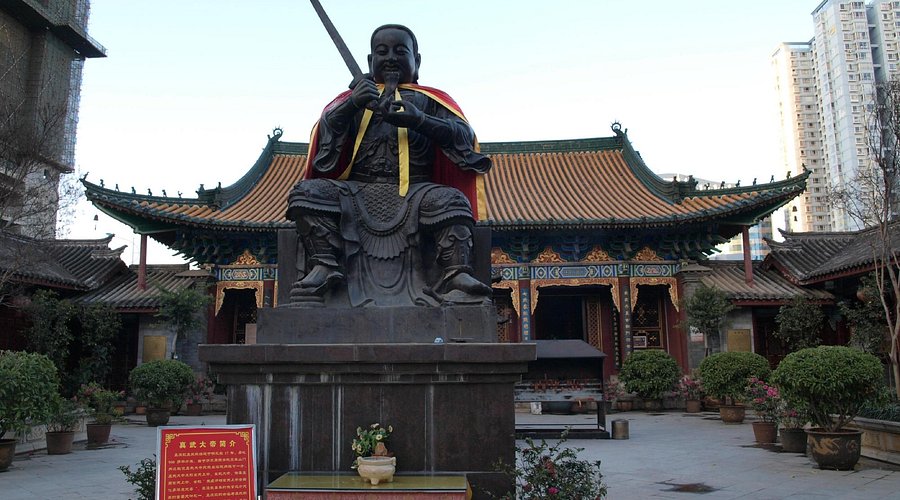
Kunming Zhenqingguan Gujianzhuqun.
The Rich History of Kunming Zhenqingguan Gujianzhuqun
The Kunming Zhenqingguan Gujianzhuqun, also known as the Zhenqing Temple Complex, holds a significant place in the rich tapestry of Chinese architectural and cultural history. Established during the Yuan dynasty, it was initially named the Zhenwu Temple, dedicated to the worship of Zhenwu, a prominent deity in Daoism. The temple’s founding dates back to the 13th century, a period marked by the Mongol Empire’s influence in China.
In 1431, during the Ming dynasty, the temple underwent substantial reconstruction under the reign of Emperor Xuande. This renovation transformed the structure into what is now recognized as the Zhenqing Temple, a name that reflects its enduring significance in the local spiritual landscape. Over the years, the temple saw further enhancements, including the addition of the front hall and the east and west corridors in 1444, which expanded its architectural footprint and functionality.
The Zhenqing Temple Complex is notable for its well-preserved architectural features that exemplify the styles of the Ming and Qing dynasties. The main structures—comprising the Front Hall, the Ziwei Hall, and the Laojun Hall—are arranged along a central axis, showcasing classical Chinese architectural principles. The Ziwei Hall, dedicated to the deity of Ziwei, is particularly remarkable for its traditional wooden construction and elegant design, while the Laojun Hall honors Laozi, the revered philosopher and founder of Daoism.
Significant renovations were also carried out during the Qing dynasty, notably in 1789, which helped maintain the temple’s integrity amid the challenges posed by time and urban development. Today, Zhenqingguan stands as the largest and best-preserved ancient architectural complex within Kunming, offering invaluable insights into the region’s architectural, artistic, and religious history. It serves as a testament to the cultural exchanges between Yunnan and central China, making it an essential destination for those interested in exploring the historical narratives of Daoism and Chinese architecture.
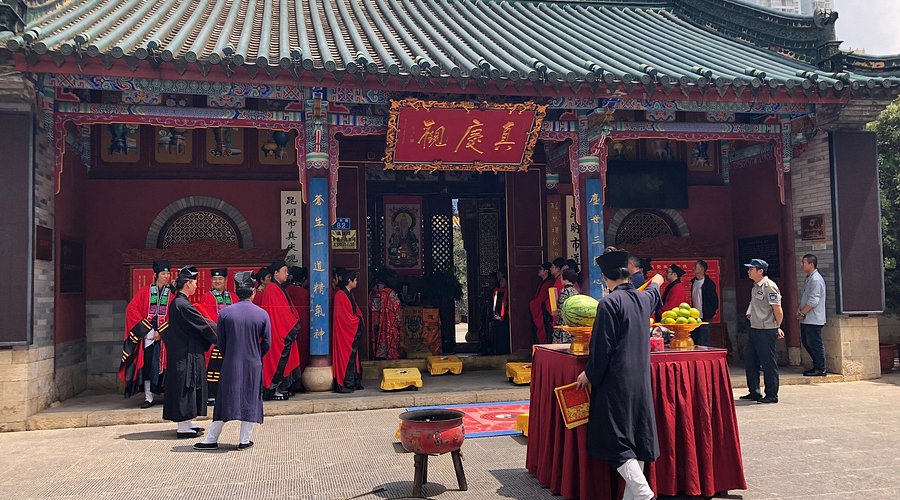
Kunming Zhenqingguan Gujianzhuqun.
Visitors to the Zhenqing Temple Complex are not only treated to a serene environment amidst the bustling city, but they also have the opportunity to engage with the spiritual heritage that this site embodies. The temple continues to be a place of reflection, prayer, and cultural appreciation, drawing both local worshippers and tourists alike, all eager to connect with the history and traditions that have flourished here for centuries.
Main Highlights: What to See at Kunming Zhenqingguan Gujianzhuqun
Nestled in the bustling heart of Kunming, Kunming Zhenqingguan Gujianzhuqun (真庆观古建筑群) stands as a tranquil oasis, inviting visitors to explore its rich history and intricate architecture. This ancient Taoist temple complex, originally established during the Yuan Dynasty, has undergone several reconstructions, with its current name adopted in the Ming Dynasty. Here are the main highlights that make this site a must-visit:
-
Architectural Splendor: The complex showcases a stunning blend of architectural styles from the Yuan, Ming, and Qing dynasties. Notable structures include the main hall, which features traditional wooden beams and intricate carvings, reflecting the artistry of ancient Chinese craftsmanship.
-
Sacred Atmosphere: Dedicated to the worship of the Taoist deity Taishang Laojun, the temple exudes a serene and spiritual ambiance. Visitors often find themselves captivated by the peaceful surroundings, making it an ideal spot for reflection and meditation.
-
Cultural Significance: As one of the largest and best-preserved ancient architectural complexes in Kunming, Zhenqingguan is a vital piece of the region’s cultural heritage. It provides invaluable insights into the architectural history, religious practices, and artistic traditions of Yunnan and its interactions with central Chinese culture.
-
Surrounding Attractions: The temple is conveniently located near other historical sites such as the Dulei Palace and the Wanqing Tower, allowing visitors to immerse themselves in a rich tapestry of local history and culture.
-
Tranquil Gardens: The temple grounds are adorned with lush gardens that enhance the site’s tranquility. Strolling through these gardens, visitors can enjoy the harmonious blend of nature and spirituality, making for a peaceful retreat amid the urban bustle.
-
Accessibility: Located at No. 82, Tuodong Road, in Panlong District, Zhenqingguan is easily accessible by public transport. It operates daily from 8:30 AM to 5:00 PM, making it a convenient stop for both locals and tourists exploring Kunming.
-
Photography Restrictions: While visitors are encouraged to soak in the beauty and history of the site, note that photography is not permitted inside the main halls, preserving the sacred atmosphere and respect for the worshippers.
With its captivating blend of history, spirituality, and architectural beauty, Kunming Zhenqingguan Gujianzhuqun offers a unique glimpse into the ancient traditions of China, making it a highlight of any visit to Kunming.
Planning Your Visit: A Practical Guide
Visiting Kunming’s Zhenqingguan Ancient Architectural Complex is a delightful experience that allows you to delve into the rich history and architectural beauty of this Taoist temple. Here’s everything you need to know to make the most of your visit.
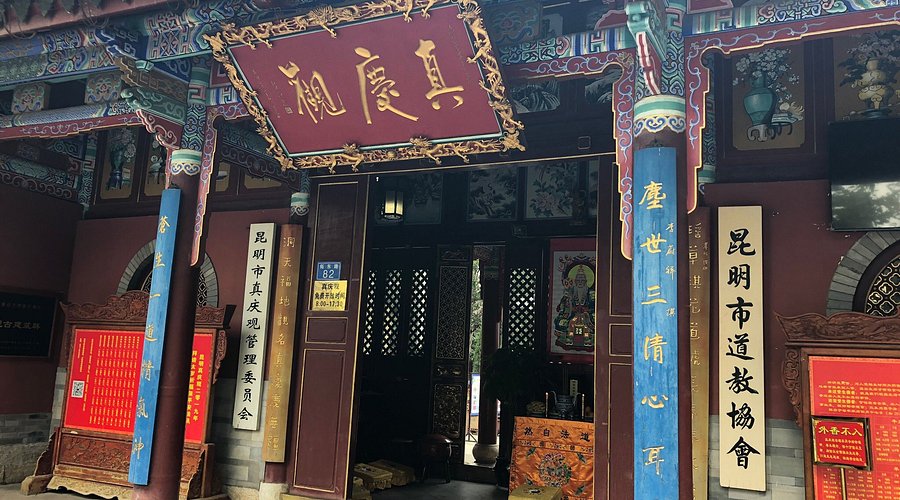
Kunming Zhenqingguan Gujianzhuqun.
Location and Getting There
Zhenqingguan is conveniently situated at 82 Tuodong Road, Panlong District, Kunming, Yunnan Province. It’s easily accessible via public transportation. You can take Bus No. 1 from either Green Lake or Yunnan University, both of which are popular landmarks in the area.
Opening Hours
The complex is open daily from 8:30 AM to 5:00 PM. Visitors are advised to arrive before 5:00 PM to allow enough time to explore the site fully.
Admission
Entry to Zhenqingguan is free, making it an excellent option for travelers on a budget. However, donations for its upkeep are appreciated.
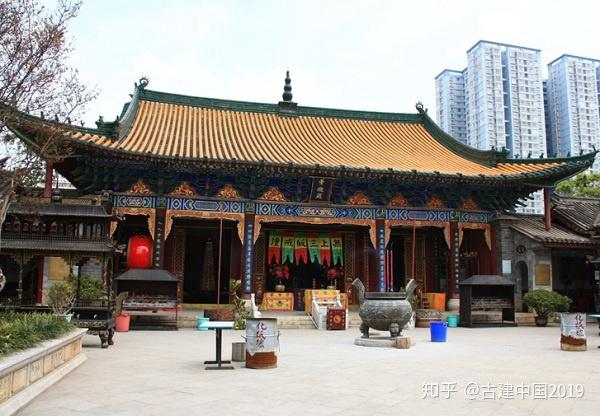
Kunming Zhenqingguan Gujianzhuqun.
What to Expect
Zhenqingguan dates back to the Yuan Dynasty, originally named “Zhenwu Temple.” Over the centuries, it has undergone several renovations, transforming it into a significant cultural and religious site in Kunming. The complex includes several halls, with the most notable being the Ziwang Hall, which is dedicated to the Emperor of the North, and the Laojun Hall, where you can find statues of Laozi, the founder of Taoism.
As you stroll through the beautifully preserved buildings, take note of the intricate architectural details that reflect the styles of the Ming and Qing Dynasties. The tranquil atmosphere provides a perfect escape from the bustling city life outside.
Photography Rules
Please be aware that photography is not permitted inside the temple. This policy helps maintain the sanctity of the space and ensures a peaceful environment for all visitors.
Nearby Attractions
After exploring Zhenqingguan, consider visiting other nearby historical sites, such as:
– Dulei Palace
– Yanlong Shrine
– Wanqing Tower
These sites complement your understanding of the local history and culture.
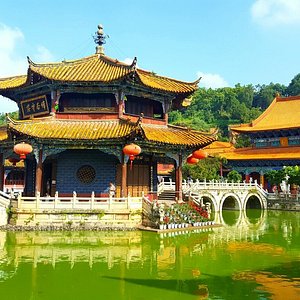
Kunming Zhenqingguan Gujianzhuqun.
Dining Options
If you’re feeling hungry after your visit, there are many local eateries nearby. Popular options include:
– Yunping Flavor Garden: Known for its traditional Yunnan dishes.
– Duan’s Little Pot: A quaint eatery offering various local snacks.
Additional Tips
- Respectful Behavior: As a place of worship, maintain a respectful demeanor during your visit.
- Dress Appropriately: It’s advisable to dress modestly, as Zhenqingguan is a religious site.
- Plan for Quiet Time: Take a moment to enjoy the serene environment, perhaps finding a spot to sit and reflect.
With its historical significance and beautiful architecture, Zhenqingguan offers a unique glimpse into Kunming’s spiritual heritage, making it a must-visit destination for any traveler. Enjoy your journey through this ancient site!
Tickets, Hours, and Booking
When planning a visit to the Kunming Zhenqingguan Gujianzhuqun (真庆观古建筑群), it’s important to have the right information about admission costs and visiting hours to enhance your experience.
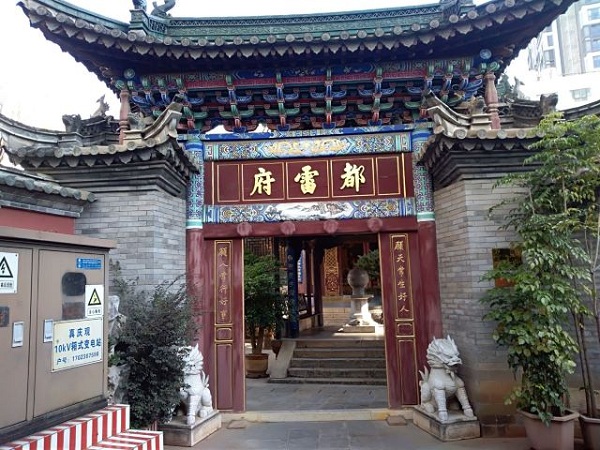
Kunming Zhenqingguan Gujianzhuqun.
Admission Tickets
Entry to the Zhenqingguan complex is attractively priced at ¥10 per person, making it an affordable destination for both locals and tourists. This fee grants access to the main halls and the serene courtyards that display traditional architecture from the Yuan, Ming, and Qing dynasties.
Visiting Hours
The site is open daily from 8:30 AM to 5:00 PM, with the last entry at 5:00 PM. Visitors are encouraged to arrive early to fully appreciate the tranquil atmosphere and to explore the intricacies of the ancient architecture without rush.
Booking Information
While advance reservations are not required, it is advisable to check for any special events or temporary closures prior to your visit, especially during holidays or festivals when visitor numbers can peak.
Recommendations
As photography is not permitted within the complex, consider taking a moment to absorb the atmosphere instead of just capturing images. The peaceful environment offers a fantastic opportunity for reflection and relaxation, making it a perfect escape from the bustling city of Kunming. Don’t forget to explore the surrounding historical sites, such as Du Lei Fu and Wan Qing Tower, which are within walking distance and enrich the cultural experience of your visit.
By preparing ahead with this information, you can ensure a smooth and enjoyable visit to this historical gem in Kunming.
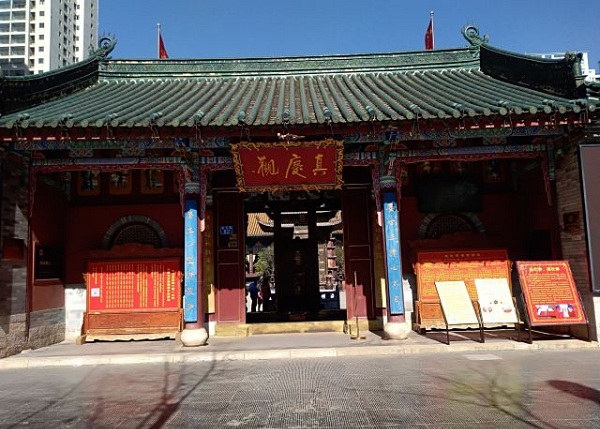
Kunming Zhenqingguan Gujianzhuqun.
How to Get There
When planning your visit to Kunming’s Zhenqingguan Ancient Architectural Complex, understanding the transportation options available can greatly enhance your experience. Situated in the bustling Panlong District, this historic Taoist temple is easily accessible via various means of transport.
Getting There
By Public Transport
The most convenient way to reach Zhenqingguan is by bus. The local public transportation network is efficient and affordable. Here are a couple of recommended bus routes:
- Bus Line 1: This bus travels from Green Lake or Yunnan University directly to Zhenqingguan. It’s a popular choice among locals and tourists alike.
- Bus Line 3: Another option that connects various parts of the city and stops near the temple.
Make sure to check the current schedules as they may vary slightly. Buses typically run from early morning until around 10 PM, providing ample opportunity to plan your visit.
By Taxi or Ride-Sharing
If you prefer a more direct route, taking a taxi or using a ride-sharing app like Didi is a good option. Taxis are plentiful throughout Kunming, and the fares are relatively inexpensive. Simply show the driver the address:
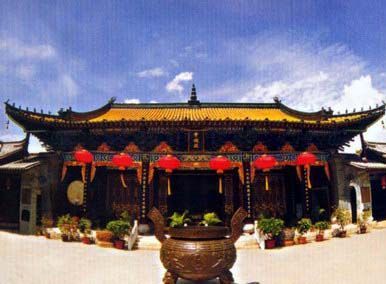
Kunming Zhenqingguan Gujianzhuqun.
真庆观, 拓东路82号, 盘龙区, 昆明市, 云南省, 中国
(Zhenqingguan, 82 Tuo Dong Road, Panlong District, Kunming, Yunnan Province, China)
By Bicycle
For those who enjoy cycling, consider renting a bicycle. Kunming is known for its bike-friendly atmosphere, and riding through the city can be an enjoyable way to explore. There are several bike rental services available, and the ride to Zhenqingguan from central locations like Green Lake is quite scenic.
Parking Information
If you are driving, there are parking facilities available near Zhenqingguan. However, space may be limited, especially during weekends and holidays, so plan to arrive early if you choose this option.
Accessibility
Zhenqingguan is located in a busy area, and while public transport is a reliable option, be prepared for some walking, as the surrounding streets can be bustling. The complex itself is relatively compact, making it easy to navigate once you arrive.
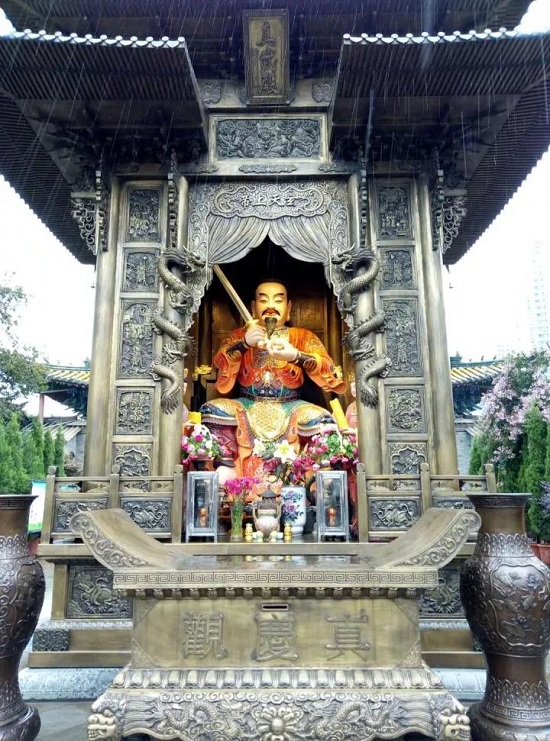
Kunming Zhenqingguan Gujianzhuqun.
Conclusion
With its convenient access via public transport, taxis, or biking, getting to Zhenqingguan is straightforward. Whether you choose to immerse yourself in the local bus culture or prefer the comfort of a taxi, your journey to this serene and historic site will be well worth the effort. Enjoy your visit!
Local Cuisine and Accommodation
When visiting Kunming’s Zhenqingguan Gujianzhuqun, you’ll find yourself immersed in a rich tapestry of history and culture. After exploring this serene Taoist temple complex, you’ll likely seek delightful local dining options and comfortable accommodations to enhance your experience.
Dining Options
- Yunping Flavor Garden (云平风味园)
- Location: 1.1 km from Zhenqingguan
- Cuisine: Local Yunnan
-
Highlights: Known for its authentic flavors, this eatery is famed for its stinky tofu and rice noodles. Priced reasonably at around ¥24 per person, it offers a chance to taste local delicacies in a casual setting.
-
Duanshi Small Pot (端仕小锅)
- Location: 3.3 km from Zhenqingguan
- Cuisine: Yunnan Street Food
-
Highlights: This quaint spot features traditional decorations and serves delectable marinated rice noodles. With dishes averaging ¥18, it’s perfect for a quick and satisfying meal.
-
Wenshan He Xian Ju (文山荷鲜居)
- Location: 3.1 km from Zhenqingguan
- Cuisine: Breakfast and Light Meals
-
Highlights: A popular breakfast joint, this restaurant is celebrated for its delicious Yunnan rice noodles. Meals here are approximately ¥15, making it a budget-friendly choice for early risers.
-
Sakura Café (樱花咖啡厅)
- Location: 0.5 km from Zhenqingguan
- Cuisine: International
- Highlights: Offering a cozy atmosphere, this café serves a variety of international dishes and is ideal for a relaxing afternoon coffee or light meal.
Accommodation Choices
- Kunming Spring City Flower Garden Hotel (昆明春城花园酒店)
-
Description: A well-rated hotel located within a short drive from Zhenqingguan, this property combines comfort with convenience. Guests can enjoy modern amenities along with beautiful garden views.
-
Kunming Huamei Hotel (昆明华美酒店)
-
Description: Situated just 2 km from the temple complex, this hotel is known for its warm hospitality and comfortable rooms. It’s an excellent choice for travelers looking for a peaceful retreat after a day of exploration.
-
Green Lake Hotel (绿湖大酒店)
-
Description: Located near the picturesque Green Lake, this hotel offers elegant accommodations and easy access to local attractions, including Zhenqingguan. The on-site dining options make it convenient for guests.
-
Kunming Youth Hostel (昆明陌上花开青年旅社)
-
Description: For budget-conscious travelers, this hostel provides a friendly atmosphere and dormitory-style accommodations. It’s a great place to meet fellow travelers and share experiences.
-
KUNMING YUNNAN JINSHENG HOTEL (昆明云南金盛酒店)
- Description: A mid-range hotel that offers comfortable rooms and a restaurant serving local cuisine. It’s conveniently located for both sightseeing and shopping.
With an array of food options ranging from local specialties to international cuisine and a variety of accommodation choices to suit different budgets, your visit to Zhenqingguan Gujianzhuqun will be both enjoyable and memorable.
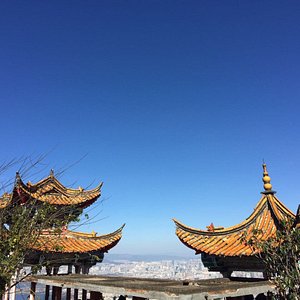
Kunming Zhenqingguan Gujianzhuqun.
Frequently Asked Questions
Frequently Asked Questions
1. What are the opening hours of Kunming Zhenqingguan Gujianzhuqun?
The site is open daily from 8:30 AM to 5:00 PM. Please note that last entry is at 5:00 PM.
2. Is there an entrance fee to visit Zhenqingguan?
Yes, entry to Zhenqingguan is free of charge, making it an accessible destination for all visitors.
3. Do I need to make a reservation before visiting?
Reservations are not required for entry, but it is advisable to check for any special events or alterations in hours before your visit.
4. Are there any restrictions on photography inside Zhenqingguan?
Photography is prohibited within the temple premises to maintain the sanctity and tranquility of the environment.
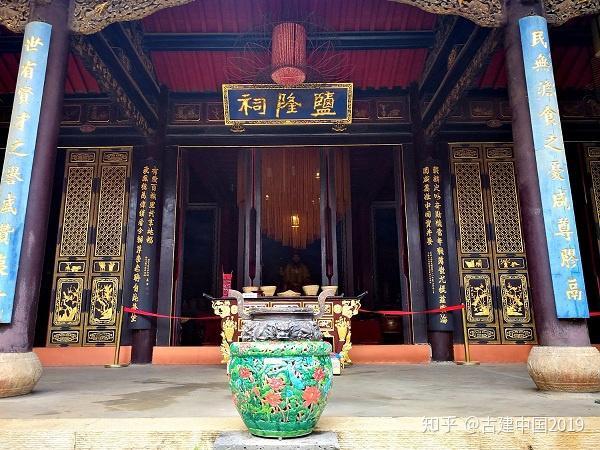
Kunming Zhenqingguan Gujianzhuqun.
5. What is the historical significance of Zhenqingguan?
Zhenqingguan was originally built during the Yuan Dynasty and has undergone several reconstructions, notably in the Ming and Qing Dynasties. The site is significant for its architectural styles and its role in the cultural exchanges between Yunnan and other regions of China.
6. How do I get to Zhenqingguan from the city center?
Zhenqingguan is conveniently located at 82 Tuodong Road, Panlong District. Visitors can easily reach it by bus or taxi from popular locations in Kunming, such as Green Lake or Yunnan University.
7. Are there any nearby attractions worth visiting?
Yes, nearby attractions include the Kunming City Museum, the scenic Cuihu Park (Green Lake), and the famous Yuantong Temple, all of which can be explored in a day.
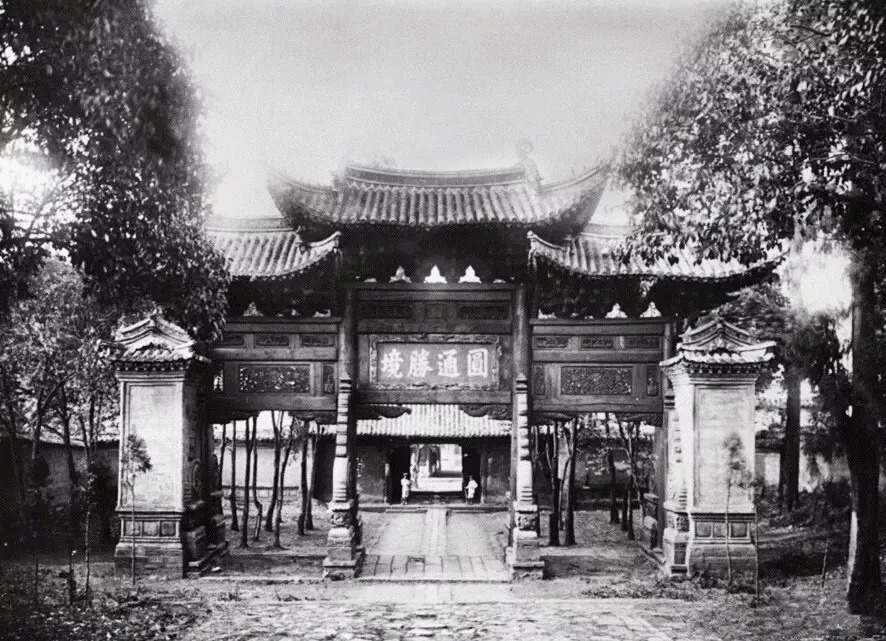
Kunming Zhenqingguan Gujianzhuqun.
8. What facilities are available for visitors at Zhenqingguan?
The site has basic amenities, but be prepared for limited facilities as the focus is on preserving the historical and cultural aspects of the site. There are no extensive visitor services, so it’s best to plan accordingly.
Final Thoughts on Your Trip
Visiting Kunming’s Zhenqingguan Ancient Architecture Complex is not just about admiring historical structures; it’s an invitation to immerse yourself in the tranquil embrace of Taoist culture amidst the bustling city. With its rich tapestry of history, dating back to the Yuan dynasty, this site offers a unique glimpse into the spiritual and architectural heritage of Yunnan. As you wander through the serene courtyards and intricate halls, take a moment to reflect on the stories etched into the very stones that have witnessed centuries of devotion and artistry.
Whether you are seeking spiritual solace, a deeper understanding of Chinese architecture, or simply a peaceful retreat from the urban hustle, Zhenqingguan provides a perfect sanctuary. The gentle ambiance encourages visitors to pause, breathe, and appreciate the melding of nature and tradition. So, make sure to include this hidden gem in your itinerary and allow its serenity to rejuvenate your spirit while exploring the vibrant culture of Kunming.
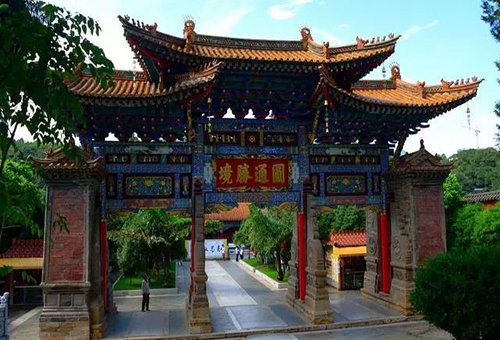
Kunming Zhenqingguan Gujianzhuqun.
